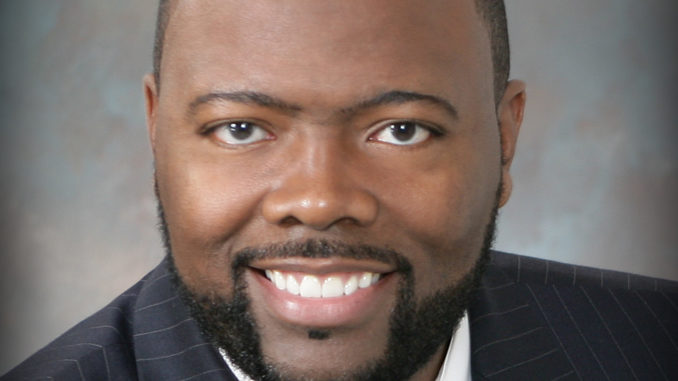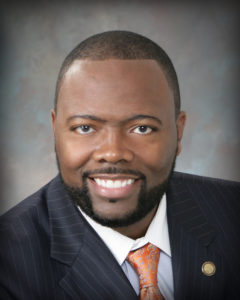

“Face reality as it is, not as it was or as you wish it to be,” said Jack Welch. Hold that thought for a moment, please.
I was talking to a candidate for Duval County School Board last year and the topic of vocational schools and trade professions came up. We had a good discussion centered on how we educate our children – specifically, how and when public schools should evaluate a child’s potential for college.
And more importantly, should we face the reality that every child is not built for college and is it better to focus on identifying students that could potentially be successful as electricians, carpenters, plumbers, mechanics, etc. as early as middle school?
I honestly cannot say that everyone graduating from high school should attend college. Some people feel that way, and I certainly feel that education is critical to everyone’s success.
In fact, Malcolm X said, “Education is our passport to the future, for tomorrow belongs to the people who prepare for it today.”
However, I am also a realist, and I fully understand and concede that college isn’t for everyone. While it would undoubtedly be controversial, I feel that we should put more effort into targeting students who probably aren’t going to college and attempt to get them interested in rewarding careers that don’t involve a college degree.
You don’t need a bachelor’s degree to be a fireman, longshoreman, carpenter, electrician, etc. You do need post secondary training, but not four year college degrees. These are great careers that pay high wages and provide good benefits.
Operation New Hope’s (ONH) Ready4Work program focuses on getting jobs for citizens who were formerly incarcerated. A key program component is their vocational training courses. These courses help participants develop skills in areas like warehouse and logistics, customer service, and construction trades.
Trade careers provide so many opportunities for individuals and families to get back on their feet or establish a career and financial foundation. With a good job you can buy that house, help pay for your child’s soccer or dance fees, invest in your retirement, provide for your family’s well being, etc.
By strategically promoting trade professions we can solve so many issues. First of all, there is a major shortage of individuals entering trade programs. Whether it’s at FSCJ or the Northeast Florida Builder’s Association, there is a drastic need for new recruits to meet market demands. The same is the case with manufacturing jobs. ONH has been able to consistently place Ready4Work graduates in living wage manufacturing jobs partly because of the vocational training the organization provides, but also because there is a high demand for skilled laborers in the industry.
In the late 1800s W.E.B. Dubois and Booker T. Washington were black leaders who both fought for economic and social equality for freed slaves. Although the overall goals were the same, the means in which they suggested we achieve the goal was very different.
Washington felt that blacks should focus more on farming and skilled labor, while Dubois felt that every black should receive an education. He also felt that ten percent of the race would provide the leadership we needed. Dubois called this group the “Talented Tenth.”
Actually, Washington was also a proponent of education as well, but he realized that in order for freed slaves to survive economically, Blacks had to focus on the blue-collar jobs that were available at the time.
Washington said, “Education is the sole and only hope of the Negro race in America.”
Today, I agree with both men in a sense. I feel that all people, not just Blacks should receive some sort of education after high school. However, again I realize that college is not an option for everyone, so we should deal with the reality of the matter and aggressively do as Booker T. Washington suggested – focus on the quality jobs that are in high demand.
It will not be popular with everyone in academia, but we have to focus more of our youth’s attention on viable career options like skilled trades. And again, for people returning home from prison, trade careers can be game changers.
Professional trade jobs require a high level of training, and can be very rewarding in the long term. Many wealthy successful businessmen started off as apprentice and grew into entrepreneurs. Once you become a licensed professional in any of the areas mentioned before, the opportunities are limitless.
Supply chain and logistics, customer support, and information technology are other key trade jobs that are in high demand. If we can do a better job of steering our youth to these careers, it’s a win-win situation for everyone.
But just like going to college – you have to be committed to finishing the program to be successful. Too many of our youth want instant gratification in life. That’s not how you build success. Willie Bady, Jr, once said, “Living a life is like constructing a building; if you start wrong, you’ll end wrong.”
I have often written about the need to grow the African American middle class, and its jobs like these that can help grow and sustain a strong middle class. I can’t say it enough, the opportunities provided by the trade professions can be very lucrative for young adults and returning citizens.
And as we deal with the realities of life, college cannot continue to be the primary option that we promote to youth. Professional trades can be a means of helping young men and women establish long-term careers and even build the next generation of entrepreneurs.

Be the first to comment